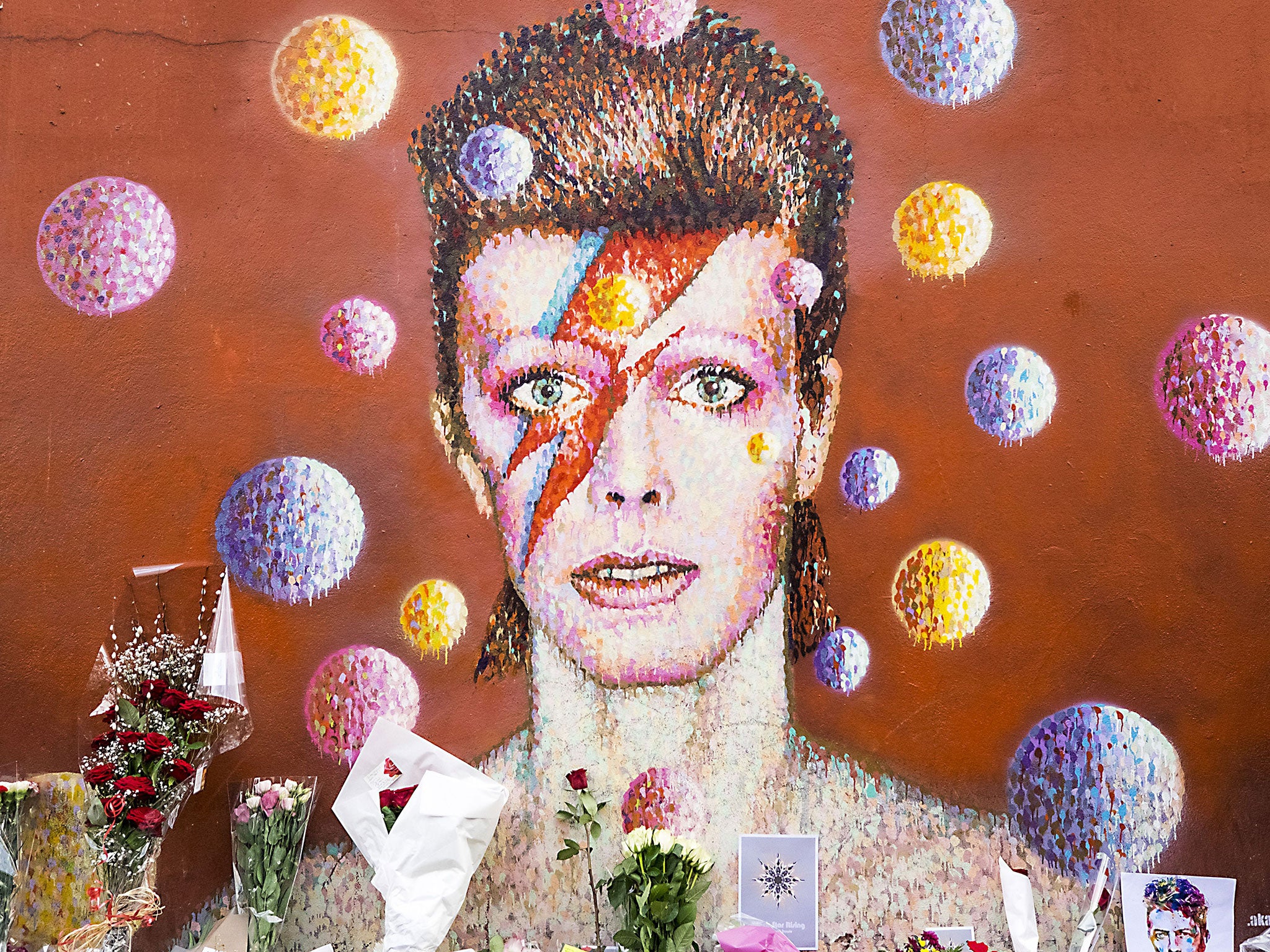David Bowie was the most influential British pop artist ever and personified our culture throughout his life
He continued to innovate and produce music inspiring devotion even when it seemed that there was nothing wholly new

Your support helps us to tell the story
From reproductive rights to climate change to Big Tech, The Independent is on the ground when the story is developing. Whether it's investigating the financials of Elon Musk's pro-Trump PAC or producing our latest documentary, 'The A Word', which shines a light on the American women fighting for reproductive rights, we know how important it is to parse out the facts from the messaging.
At such a critical moment in US history, we need reporters on the ground. Your donation allows us to keep sending journalists to speak to both sides of the story.
The Independent is trusted by Americans across the entire political spectrum. And unlike many other quality news outlets, we choose not to lock Americans out of our reporting and analysis with paywalls. We believe quality journalism should be available to everyone, paid for by those who can afford it.
Your support makes all the difference.What a great artist David Bowie was. Between the dawn of rock’n’roll and the coda of punk he was truest to the spirit of music as a sensibility of rebellion, of reinvention and of scandalising the respectable. Yet he continued to innovate, and to produce music inspiring devotion, even when it seemed that there was nothing wholly new and that the respectable were all former rockers themselves.
He was a consummate performer and natural showman with a startlingly original mind who captured the spirit of the times before the word zeitgeist even became fashionable. His “Space Oddity” provided the soundtrack to the danger and thrill of the 1969 Apollo Moon landing. Then, he put on make-up and a spangly catsuit, and with a single, rule-breaking, amateurish performance of “Starman” on Top of the Pops in 1972, probably did more to change attitudes towards gay and transgender people than anyone before or since.
He did more than that, of course. He liberated a significant number of young straight people, the ones who thought they were odd, that they didn’t fit in, who felt trapped in suburban conformity. Bowie’s real name was Jones and he came from Beckenham, after all.
He was weird, and weird was good. He constantly experimented with identities and made it all right for teenagers to experiment too. Partly because of him, young people found they could be liberated as much by being different as by being part of the group. His fans often discovered his music as an intensely personal experience but knew, as he put it in “Rock’n’roll Suicide”, that they were “not alone”.
It would be too grand to claim that he liberated Central and Eastern Europe from communism, although he did perform “Heroes” on the western side of the Berlin Wall in 1987 so that thousands of people in East Berlin could hear it, cheering and singing along, on the other side. Western pop music was undoubtedly symbolic of the yearning of the East for freedom, and no song expresses it better.
He did yearning, in his often elliptical lyrics, as well as the best, but he was a brilliant musician too, accomplished enough to copy and yet to make his own. He would sometimes even sing the words to “Somewhere Over the Rainbow” to “Starman”, because part of the tune is so similar.
He was a collaborator of genius who brought the best out of other musicians and other creative colleagues in fashion, theatre, film and video – and yet who always kept his own creative counsel. Sometimes the changes of style were so extreme that there was only his voice to confirm that he was in fact the same person – that delicate voice, with its fleeting south London accent, that never seemed quite powerful enough.
That is why comparisons are as unnecessary as they are inevitable. As great as The Beatles? He was completely different. He leaves his own monument. It is impossible to imagine much of today’s music without his influence.
What was most extraordinary about him, perhaps, was not his prodigious musical talent, intelligence and other-worldliness, but his quizzical Englishness.
He said some daft things and took too many drugs, but there remained always a gentleness about him, a sense of humour and an intellectual curiosity. How English, in the end, to keep your cancer diagnosis private and to say goodbye by recording a final album, one which, like so many before it, puzzled and intrigued his critics and his public. Rest in space, star man.
Join our commenting forum
Join thought-provoking conversations, follow other Independent readers and see their replies
Comments